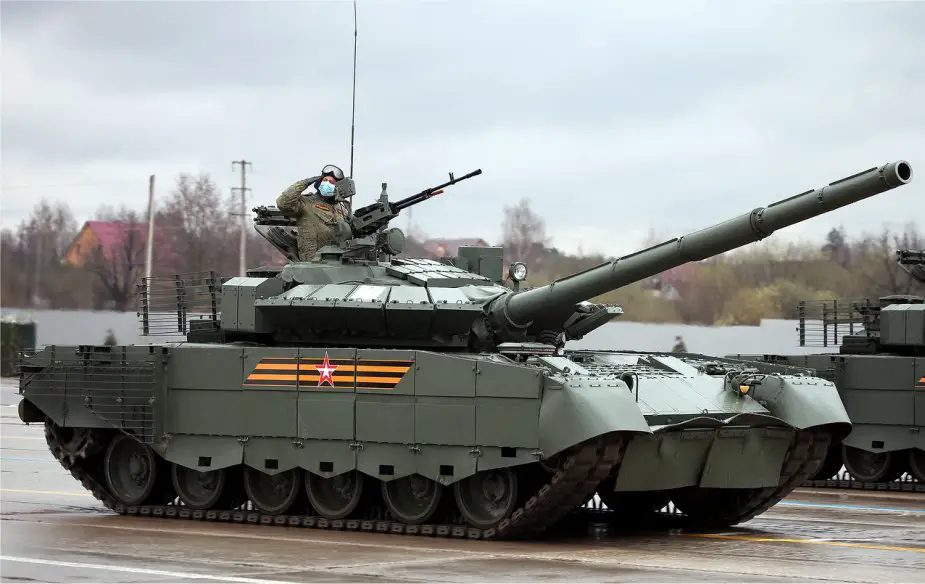- Army
- Conflicts in the world
- Israel - Iran conflict 2025
- Pakistan - India Conflict 2025
- Russia Ukraine War 2022
- Libya conflict day by day
- HAMAS - Israel War 2023
- Operation Serval in Mali French Army
- Sangaris operation Central African Republic
- Sangaris opération militaire République Centreafrique
- Ukraine - Russia conflict
- Syria conflict news
- Defence & Security Industry Technology
- Armies in the world
- Analysis Defense and Security Industry
- Conflicts in the world
- Navy
- Air
Threefold rise in Russian armored vehicle production to offset losses in Ukraine conflict
As the conflict in Ukraine persists into 2023, Russia, despite facing significant international economic sanctions, has seen a notable increase in its defense orders. According to a press release from the Steel Research Institute dated January 16, 2024, there was a threefold increase in state defense orders for the year 2023 compared to the previous year. This expansion included a surge in orders for armored vehicles, including tanks.
Follow Army Recognition on Google News at this link

T-80BVM during the victory Day Parade in Alabino in 2021 (Picture source : Vitaly Kuzmin )
The Steel Research Institute responded to this demand by tripling its operational output in 2023. It embarked on over 40 research and development projects aimed at enhancing the security of military equipment. Notable developments included launching the serial production of a dynamic protection complex for BMP-3 vehicles and creating visibility reduction systems for T-90M, T-80 BVM, and T-72B3 tanks. The Institute also began serial production of new dynamic protection elements, like the 4S24 and 4S25 models, and expanded into a new niche, developing anti-fragmentation protection for unarmored vehicles used by Russian law enforcement.
The 4S24 and 4S25 are part of a generation of reactive armor systems that are lighter, more efficient, and more adaptable than their predecessors. They are engineered to counter a wide range of anti-tank weapons, including rocket-propelled grenades (RPGs) and anti-tank guided missiles (ATGMs). The key feature of these systems is their ability to dynamically respond to incoming threats by detonating a protective explosive layer that effectively neutralizes the impact of the attacking projectile. This not only increases the survivability of the vehicle but also ensures better protection for the crew inside.
In the civilian market, the Institute introduced the Egida anti-fragmentation blanket and the Elbrus-T titanium helmet, responding to growing demand. Internationally, it completed contracts with allied nations and engaged in negotiations for new export contracts, demonstrating its resilience and adaptability in a challenging economic environment marked by sanctions on Russia. These sanctions, targeting Russia's financial, energy, and defense sectors, have significantly impacted the Russian economy, leading to reduced foreign investment and a weakened ruble. Additionally, individual Russian oligarchs and politicians have faced targeted restrictions.
The significant increase in Russian tank production, as reported by their defense industry, is crucial for the ongoing war of attrition in Ukraine. Since the conflict's inception, Russia has experienced a substantial depletion of its tank arsenal. Various sources estimate that around 85% of the tanks deployed on the front lines have been destroyed or incapacitated, although these figures have not been officially verified. This escalation in tank production is therefore a critical step for Russia to replenish its diminished armored forces and sustain its military efforts in the conflict.
Conversely, Ukraine continues to navigate substantial economic and strategic challenges. The country's reliance on external support, particularly from Western allies, remains critical, especially in light of potential shifts in international politics, such as the American elections. The outcome of these elections could critically shape the future of aid to Ukraine, potentially altering its capacity to maintain its defense efforts and endure the economic ramifications of the prolonged conflict.
News Russia Ukraine War


























